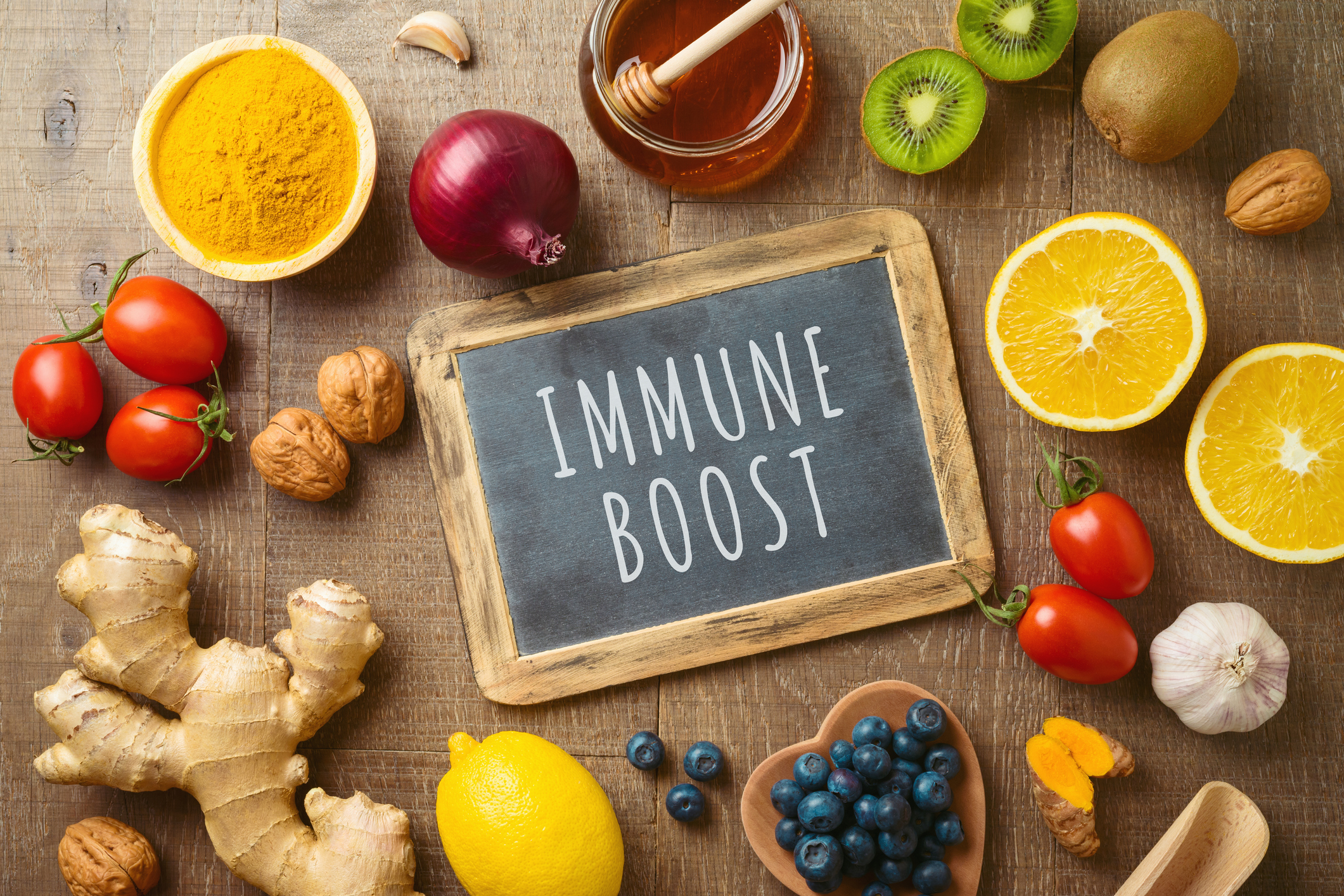Get Easy Health Digest™ in your inbox and don’t miss a thing when you subscribe today. Plus, get the free bonus report, Mother Nature’s Tips, Tricks and Remedies for Cholesterol, Blood Pressure & Blood Sugar as my way of saying welcome to the community!
The surprising way your immune system helps burn fat

A healthy immune system is crucial for fighting off viruses and pathogens that can make you sick. It keeps you free of pain, cancer, autoimmune disease and other chronic health problems.
Until recently, scientists thought the immune system remained mostly dormant unless the body was under attack from unfriendly microbes. But it appears our immune system doesn’t stop working when we’re healthy…
It has cells stationed all over the body that are busy performing vital functions — such as those related to energy production.
In fact, researchers recently discovered a link between the immune system and a particular mechanism within our bodies that’s become well-known due to the ketogenic (keto) diet…
How the immune system converts fat into energy
According to results of a European study, the immune system continues to work in your body even when you’re at peak health to produce an energy source called ketone bodies. Researchers found the immune system causes the liver to produce ketones to help the body convert fat into energy when you’re fasting.
As you may know from following an intermittent fasting or keto diet plan, when we haven’t eaten anything for several hours, our bodies start drawing on our fat deposits for power.
However, some cells, like those in our brain, are not capable of burning fat. These cells depend on the energy produced by ketone bodies, which the liver forms by metabolizing fat. Ketones energize the body and allow us to function even if we aren’t eating anything.
Ketone production is the focus of keto and other popular weight loss plans that concentrate on cutting carbohydrates from our food so the body can begin burning fat instead. There have been studies that suggest ketone bodies may have a positive impact on risk factors for cardiovascular disease. And many people on the keto diet have reported improvements in diabetes, chronic pain and skin conditions as well as weight loss.
“We now believe that the immune system affects the production of ketone bodies in fit and healthy individuals,” says Anne Loft, a postdoc at the Department of Biochemistry and Molecular Biology in the University of Southern Denmark. “And given the beneficial effects of ketone bodies in various common metabolic disorders, this knowledge can hopefully also be applied to understand how the immune system is trying to keep the body in equilibrium when we’re sick.”
Keto helps strengthen the immune system too
Keto not only works hand in hand with the immune system when it comes to ketones, it can actually boost your immunity as well. For instance, one study showed a keto diet caused mice to produce a particular type of T cell that helped fight off a serious strain of the flu virus.
Researchers are also exploring keto’s impact on chronic inflammation, a process that involves an overactive immune system. One study indicated the keto diet helped reduce a particular type of T cell that’s involved in the type of inflammation that leads to autoimmune disease.
And keto may also help support the immune system’s cancer-fighting potential. Some studies indicate keto can help decrease tumor tissue and stabilize tumors in cancer patients, as well as reduce the lactate level in cells and cause changes to metabolism in cancer cells.
More reasonable carb-counting
So if you’re looking for a natural way to boost immunity while promoting weight loss and heart health, the keto diet may be a good choice for you. And if you’ve been avoiding keto because you don’t think you can keep your carb count below the recommended 50-gram daily maximum, you can always go for a modified version that gives you more leeway.
Health experts note that you can still get significant health benefits even if you only lower your carbs to 120 grams per day maximum. To give you an idea of how much that is, here are some carb measurements for foods you might normally consider off-limits on a low-carb diet:
- Blueberries (1/2 cup) — 10 grams
- Yogurt (1 cup plain Greek) — 10 grams
- Corn tortilla (1 6-inch) — 12 grams
- Bread (1 slice) — 10-20 grams
- Flour tortilla (1 6-inch) — 15 grams
- Mashed potatoes (1/2 cup) — 15 grams
- Hummus (1/2 cup) — 15-20 grams
- Apple (1 medium) — 15-30 grams
- Corn on the cob (1 6-inch to 9-inch ear) — 20-30 grams
- Banana (1 6-inch to 9-inch) — 30-45 grams
- Baked potato — 40 grams
- Pasta (1 cup cooked) — 45 grams
- Rice (1 cup cooked) — 45 grams
With a 120-gram restriction on your carbs, you’ll be able to have blueberries and Greek yogurt for breakfast, a slice of bread with your lunch and a baked potato with your steak — all without breaking your carbohydrate bank.
Editor’s note: Are you feeling unusually tired? You may think this is normal aging, but the problem could be your master hormone. When it’s not working, your risk of age-related diseases skyrockets. To reset what many call “the trigger for all disease” and live better, longer, click here to discover The Insulin Factor: How to Repair Your Body’s Master Controller and Conquer Chronic Disease!
Source:
The immune system also helps a healthy body — University of Southern Denmark
Diabetes and the Ketogenic Diet — Endocrine Web
Carbohydrate Food List — Michigan Medicine













